[picture donated by Mike Brueckmann]
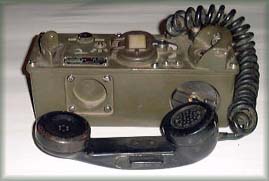
TA43/PT, Western Electric predecessor
to the TP312
[picture donated by Mike Brueckmann]

![]()
TA-312
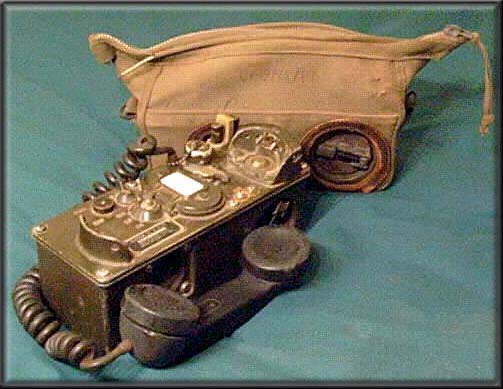
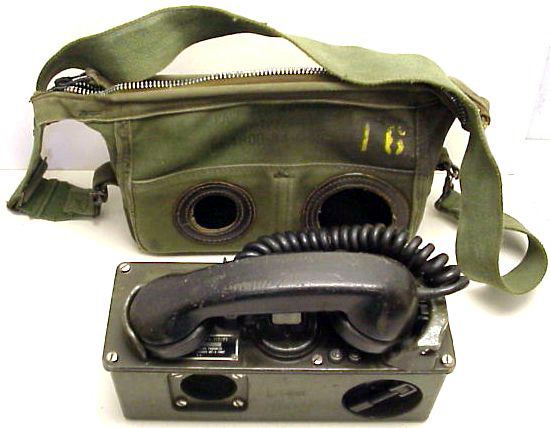
A picture donation from Rolf Taylor:
Here are the picture of the 312 with the adjunct
dial pad. It uses its
own type J battery.
It has a flap that extends to cover the magneto
crank, to prevent use of
the magneto when tone signalling is used.
I believe that with this adaptor installed
and the selector switch set
to CB the unit should be usable on any normal
POTS line.
The adjunct pad is labelled:
(first Label)
ADAPTOR, TONE SIGNALLING TA-955/PT
STAR DYNAMIC CORP P/N 2140
(second & THIRD labelS, on magneto cover flap, inside and outside)
WARNING DO NOT REMOVE COVER EXCEPT FOR RADIO LOOP TO THE SB-3614
(fourth label, ON BOTTON)
<--- Connector
<-REMOVE SCREWS TO CHANGE BATTERY->
ADAPTER, TONE SIGNALLING TA-955/PT
STAR DYNAMIC CORP. P/N 2140
5711 KENNEDY BLVD.
NORTH BERGEN BLVD, NJ 07047
SERIAL NUMBER 2614
CONTRACT NO. DLA900-87-C-0993
<-REMOVE SCREWS TO CHANGE BATTERY->
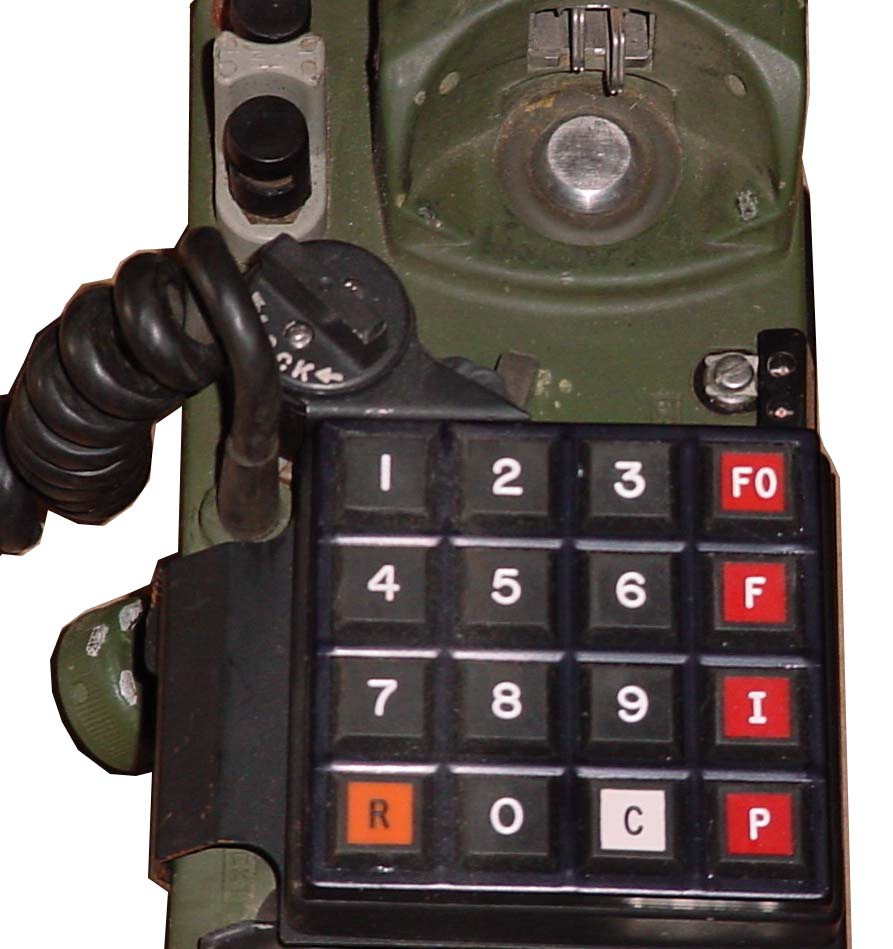
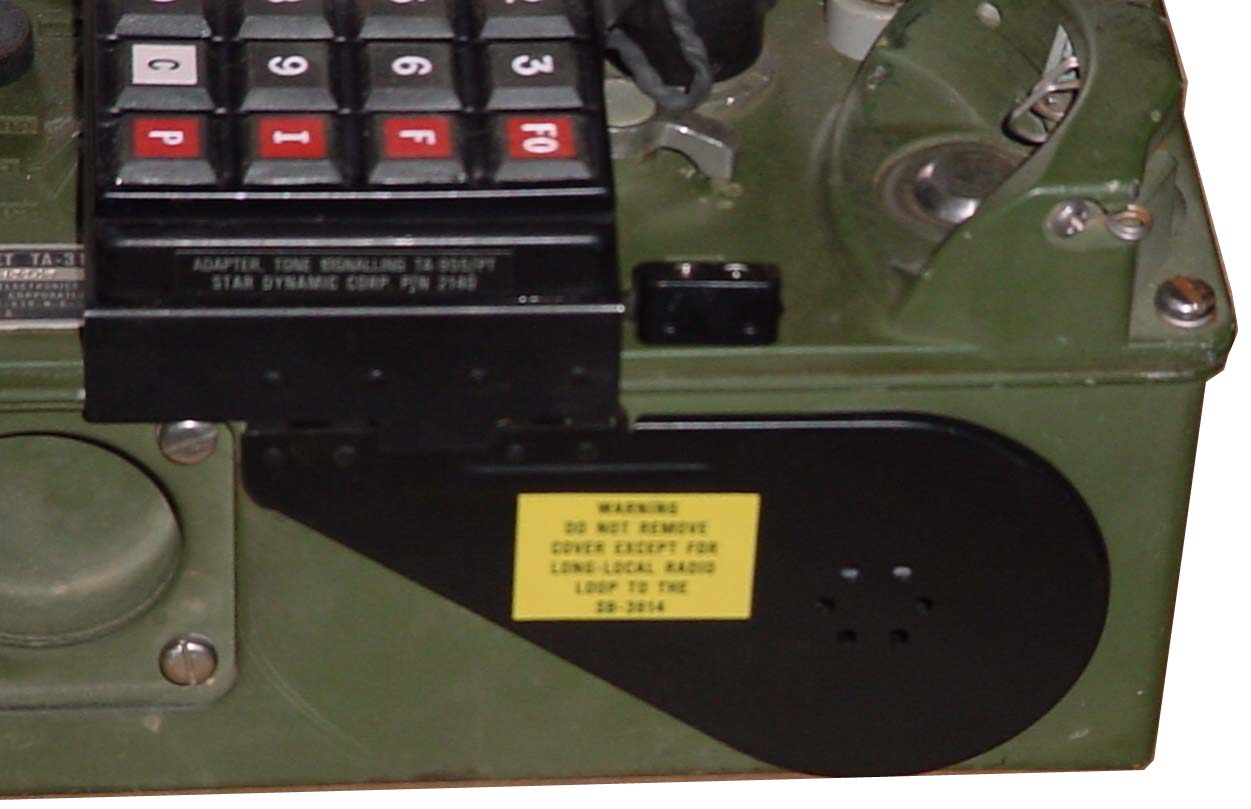
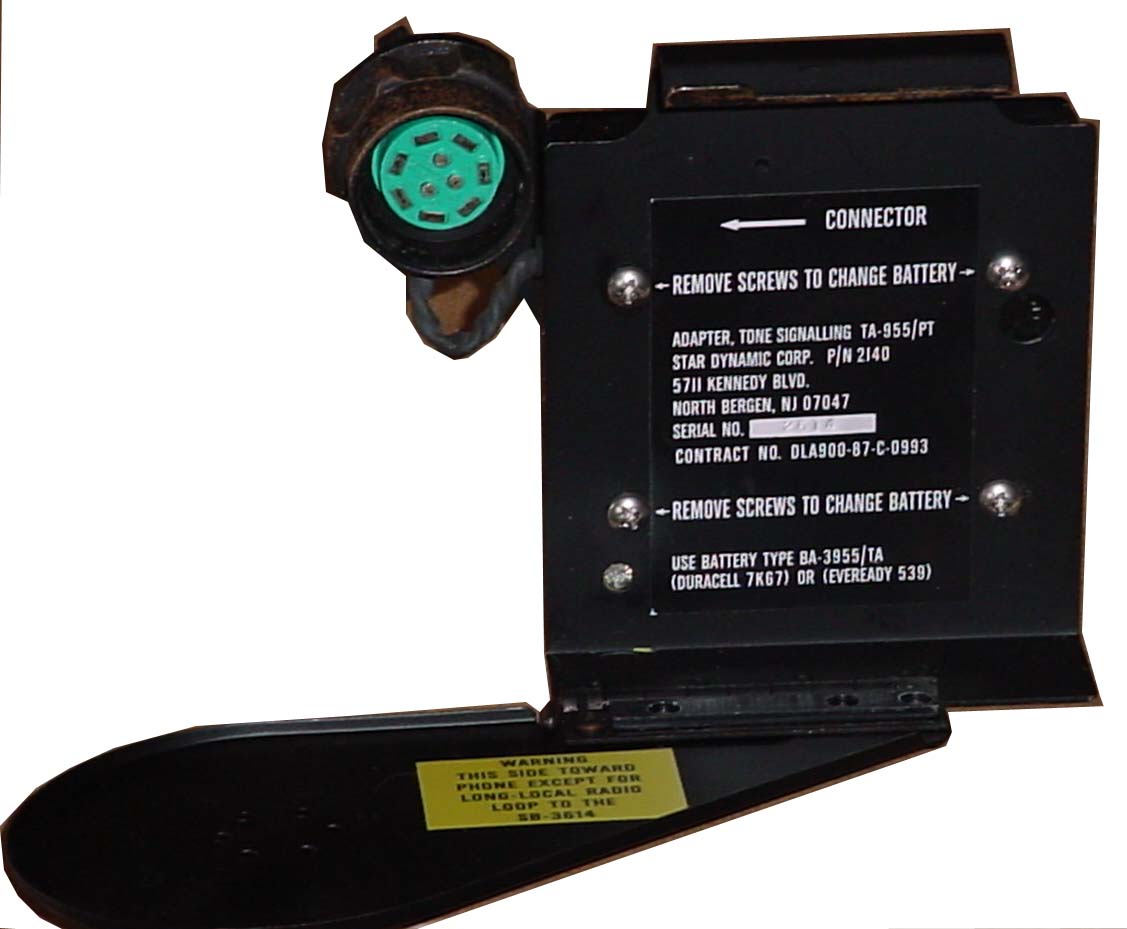
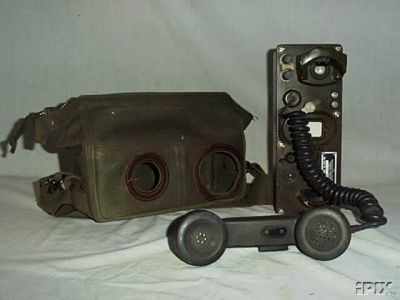
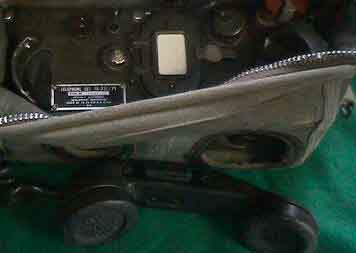
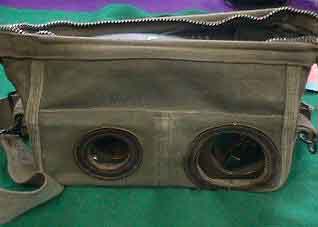
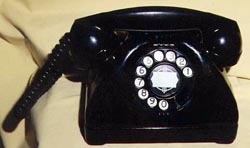
Ok, Someone want to send me a pic of a "real" TP-6-A?
I suspect that as the Auto. Elect.
dial was the only commercial dial approved by the Signal Corps (so that
the Telephonics and Nanasi are
copies) that in the beginning of
TP-6 designation all the examples were originally outfitted with Auto.
Elect. dials and only later were those
two companies contracted to supplement
the demand for such a dial design. One can speculate that for some
reason the W.E. dial (which
could have been produced in sufficient
quantities) was judged unsatisfactory.
Marshall
and note that up to December 1954
(The latest version of the TM that I have seen) W.E. dials will NOT correctly
be found in TP-6-A units as they were never approved "by the S.C. on substation
equipment except the dial used with the TA-236/FT." (the W.E. 500 set version).
Telephone collecting Precision
is not easy!
Marshall
Please amend my original comments
about the manufacturers of TA-45(*)/GT dials. I do not have an example
of a TA-45B/GT dial and do not know if the design is A.E. or other (I will
ask the listserv for A.E. info); all I know is that the A.E., Telephonics,
and Nanasi dials all have shunt cams and pulse cams whereas the TA-45B/GT
has a shunt cam and an impulse WHEEL. Also the TA-45(*)/GT dials
all require a dial adapter for use with the North sets.
In addition, as many of the TP-6
sets were furnished as MANUAL versions, subsequent insertion of non Signal
Corps approved dials would not convert them into proper TP-6 units.
Marshall
TP-6 represents eight different commercial model
desk-type telephone
sets, viz.:
1) Western Electric Co. No. 302A W-3
2) Auotomatic Electric Co. No. 40
3) Kellogg Switchboard & Supply Co. No. 925BAX
4) Stromberg-Carlson Co. 1222BW
5) North Electric Mfg. Co. No. 3H6SL
6) North Electric Mfg. Co. No. H-600SL
7) Stromberg-Carlson Co. No. 1242WA
Also, several of these equipments have individual
nomenclature, viz.:
2) TA-101/FTC
3) TA-102/FTC
4) TA-113/FTC.
TA-107/FTC looks externally like the North sets
but whose base plate looks like the WE turned 90 degrees.
Also, the TP-6A, by Conn. Tel. & Elect. Corp,
eventually was given the TA-241/U designation.
The dials in the above sets must be TA-45/GT,
TA-45B/GT or TA-45C/GT, which were (as far as I know) only manufactured
by Auto. Elect., Telephonics, or NANASI CO. INC. This means that
the TP-6 designation was only given to those sets with the TA-45(*)/GT
dials; no WE, North, SC dials permitted! Also note that the TA-45(*)/GT
dials by
Auto. Elect are just marked Auto. Elect. with
the five and two sets of contact screws with connecting strap.
Much of this info is contained in TM 11-468,
"Substation Maintenance"; a manual I'm still trying to find, in case you
come across any!
Regards,
Marshall
![]()
Go to the USN and USMC telephone equipment page
![]()
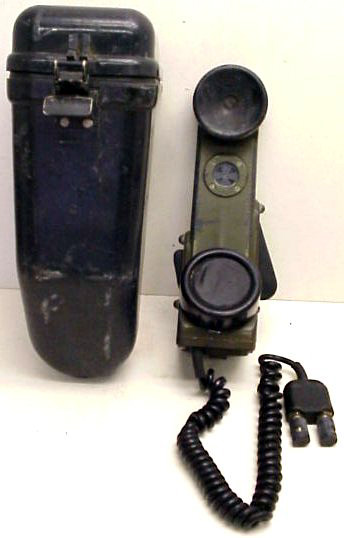
TA-1/PT TELEPHONE, sound-powered
unit requires 2-conductor field phone wire connected to another TA-1 for
communication without batteries. Palm-operated generator provides approx
100 V to buzz- signal another phone; also visual indicator. Has coil cord
with push terminals for wire hook-up and plastic carrying case.
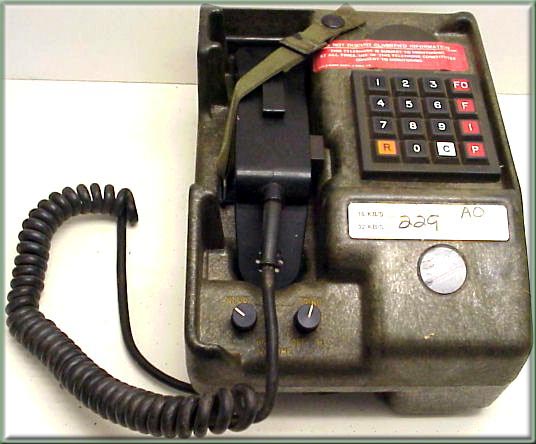
TA-954/TT NON-SECURE DIGITAL VOICE TERMINAL
used in Tri-Tac comm-system: 4-wire set xmits and receives diphase-modulated
digital voice and loop signaling info at 16K or 32K bits. 125 ohm line
impedance 125 ohms; range 4 km using WF-16 field (no stock). Requires 24-56
VDC, Tone pad has characters 0-9, FO-F-I-P-R-O-C; also Volume L-H Ring
- Receive & H-250 handset. Plastic case is EMI/EMC static protected.
{I got out to soon to get to use one of these!}
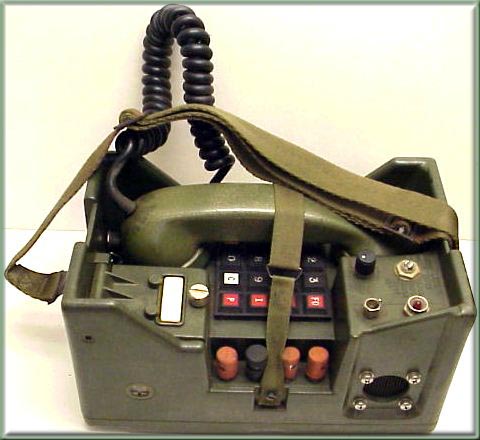
TA-838/PT MILITARY FIELD TELEPHONE has push-button
numeric tone pad and is designed for 2- or 4-wire
communications; replaces old EE-8 and TA-43/312
field phones. Ringing signal audible only in 4-wire hook-up. TA-838
also operates over standard telephone lines.
Rugged thermoplastic construction; re-quires four C-cell batteries.
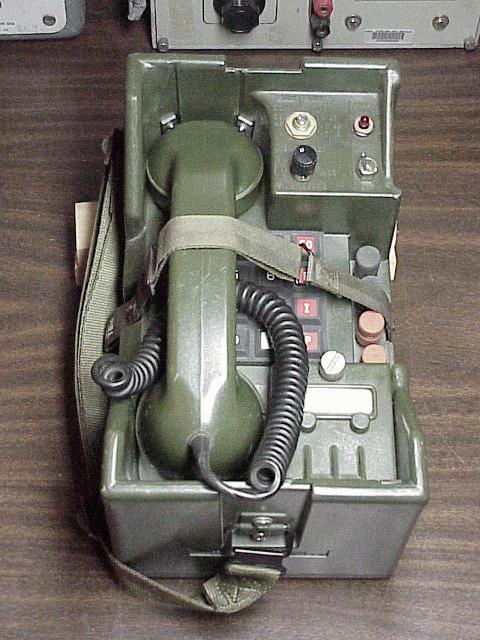
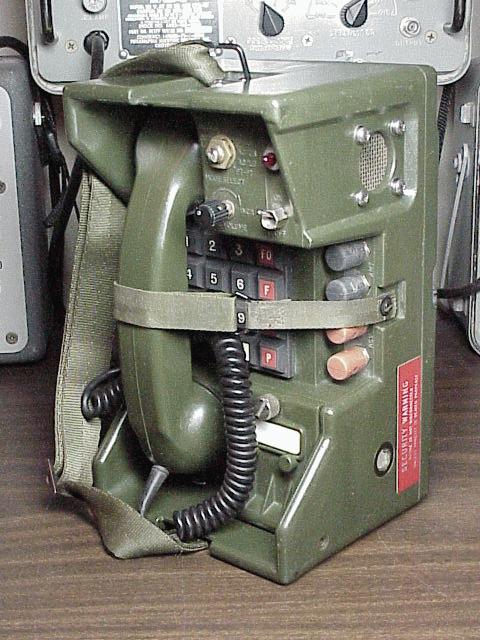
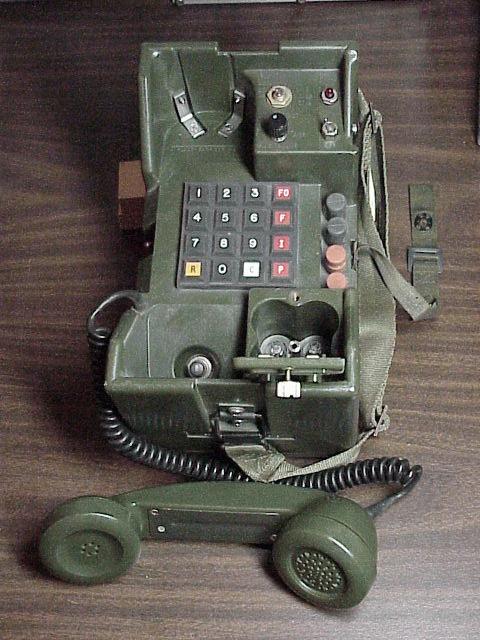
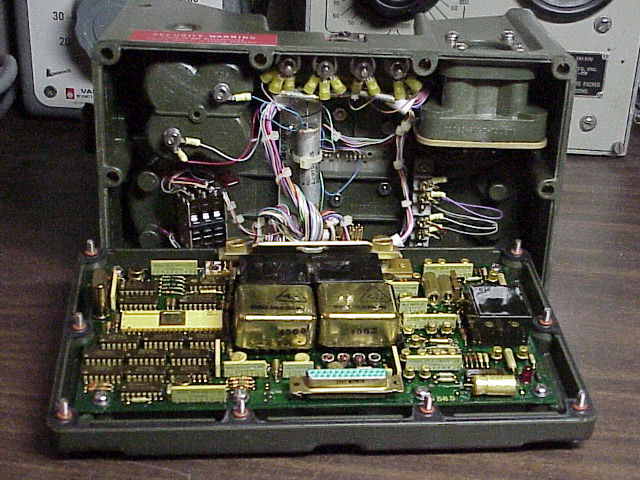
![]()
TM-5805-243-12 (TA-1/PT): Range, using WD-1/TT Field Wire - 4 miles
TM-11-333 (EE-8):
Type of Wire lines...Miles (Point to point/Switchboard System)
W-110-B, nonloaded...11/2
W-110-B, 5,280-88 (loaded)...19/4
W-130-A...4.5/0.9
W-143, nonloaded...25/5
W-143, 3,300-88 (loaded)...100/20
Open wire
080 copper-steel, 40%...120/24
104 copper-steel, 40%...165/33
128 copper-steel, 40%...230/46
080 copper...230/46
104 copper...360/72
TM-11-678 (Fundamentals of Telephony):
Wire...Miles (Single Pair- Wet/Dry)...Miles (Twin pair strung on poles- wet/dry)
W-110-B...11/18...65/65
WD-14/TT...12/20...70/70
WD-1/TT...12/20..70/70
This TM also has descriptions of various Transmission Lines:
Spiral-four cable contains four conductors
in 2-pairs. Each conductor
consists of seven strands of copper, and is
covered in polyethylene insulation...
Five-pair rubber cable contains ten conductors,
arranged in five
pairs...Each conductor is tinned solid-copper
wire, covered with rubber
or latex insulation...
Toll cable differs from the two types just
described primarily that its
outermost covering is made of lead...The wires
sizes customarily used
are # 19 and # 16...
Field-wire Lines...consist of simple pairs
of insulated wire twisted
together...They are used primarily for short
lines, because of their
high transmission loss. The military designation
for the field wires
most commonly used are W-110-B, WD-14/TT and
WD-1/TT... Each of the two
conductors has seven strands, of which four
are copper and three are
steel. Each seven strand conductor is covered
with polyethylene
insulation and an outer protective covering
of nylon.
(Keith, if you exhaust all other sources I
have some of this somewhere I
looked and could not find it, but I'd be willing
to look again)
TB-Sig-223 (Field expedients for wire and radio)
discusses loading and
use of twin pairs to extend range.
Rolf Taylor